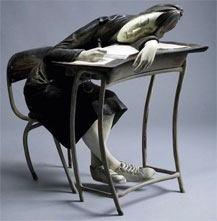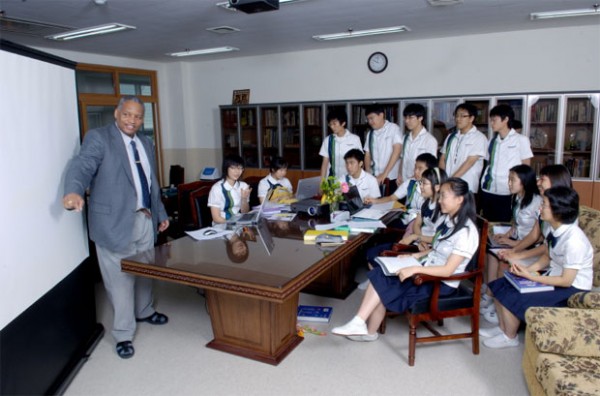 영어토론방 영어토론방 | Home>영어토론방 |
Education International middle school and private education
페이지 정보

본문
International Schools
Authorities Need to Build Consensus Over Elite Education
The nation is sharply divided over a plan by the Seoul Metropolitan Office of Education to open two international middle schools next spring. The plan is in line with a policy of introducing a more competitive education system advocated by Kong Jeong-taek, the newly elected superintendent of the education office. During last month's campaigning, Kong promised to set up more schools specializing in foreign languages, science and other subjects to promote top quality education for talented students.
Kong's first task will be to put the final touches on how to create international middle schools. His office announced Tuesday that it will allow two middle schools to transform themselves into international schools next March. The applicants are Younghoon Middle School and Daewon Middle School in northern Seoul, each of which will be allowed to recruit 160 students in five classes.
The municipal education office is scheduled to finalize the plan around October after consultation with the Ministry of Education, Science and Technology. The problem is that the progressive Korean Teachers and Education Workers' Union (KTU) and some parents' groups are raising their voices against the international school project. The rationale for their opposition is based on fears that the plan will damage the nation's long-held egalitarian education system designed to provide equal educational opportunities to children of both rich and poor families.
 The government has made an exception for the operation of elite high schools specializing in foreign languages, science and arts. The number of such high schools now exceeds 50 in the country. But there are only two elite schools for middle school students ― Cheongshim International Academy in Gapyeong, Gyeonggi Province, and Busan International Middle School in the southeastern port city of Busan.
The government has made an exception for the operation of elite high schools specializing in foreign languages, science and arts. The number of such high schools now exceeds 50 in the country. But there are only two elite schools for middle school students ― Cheongshim International Academy in Gapyeong, Gyeonggi Province, and Busan International Middle School in the southeastern port city of Busan.
It is somewhat late for the capital city to have international middle schools in this era of globalization. The Seoul education office said the city needs international middle schools for English immersion education to cultivate global leaders in the 21st century. It also stressed that such schools can help put the brakes on young students' rush to go abroad for study.
But unionized teachers and parents sticking to the standardization policy are against the operation of international middle schools which they claim are nothing but elite schools for a small number of children from rich families. They also express concerns that such schools will only lead to the revival of entrance exams for middle schools, prompting more private tutoring among elementary school students, especially for English lessons.
Another problem is the admissions policy of international schools. The city education office said it would adopt a lottery system. It plans to allow the specialized schools to shortlist applicants after screening them based on recommendations, academic competition awards, school records, interviews and group discussions. Then a lottery will finally select successful applicants.
It is nonsense that students will get admission to the international schools though a lottery, which runs counter to the purpose of international schools. To solve all the problems, the educational authorities should first build a consensus on the operation of international middle schools. The new school program cannot succeed without national consensus on the issue. Then the authorities ought to let schools have their own admissions policy that is transparent and accountable.
Question
1. The presider will select a member and give him or her a question about reference.
2. What do you think about the merits or demerits of international middle school?
3. How many times do you participate in private education in your life?
Tell us your experience and your thought about the effectiveness of private education as a 'real education'.
* Is the competition better than cooperation in achieving excellence?
이 글은「대학연합영어토론동아리」www.pioneerclub.com에서 제공하는 영어토론 정보입니다.
Authorities Need to Build Consensus Over Elite Education
 |
The nation is sharply divided over a plan by the Seoul Metropolitan Office of Education to open two international middle schools next spring. The plan is in line with a policy of introducing a more competitive education system advocated by Kong Jeong-taek, the newly elected superintendent of the education office. During last month's campaigning, Kong promised to set up more schools specializing in foreign languages, science and other subjects to promote top quality education for talented students.
Kong's first task will be to put the final touches on how to create international middle schools. His office announced Tuesday that it will allow two middle schools to transform themselves into international schools next March. The applicants are Younghoon Middle School and Daewon Middle School in northern Seoul, each of which will be allowed to recruit 160 students in five classes.
The municipal education office is scheduled to finalize the plan around October after consultation with the Ministry of Education, Science and Technology. The problem is that the progressive Korean Teachers and Education Workers' Union (KTU) and some parents' groups are raising their voices against the international school project. The rationale for their opposition is based on fears that the plan will damage the nation's long-held egalitarian education system designed to provide equal educational opportunities to children of both rich and poor families.
 The government has made an exception for the operation of elite high schools specializing in foreign languages, science and arts. The number of such high schools now exceeds 50 in the country. But there are only two elite schools for middle school students ― Cheongshim International Academy in Gapyeong, Gyeonggi Province, and Busan International Middle School in the southeastern port city of Busan.
The government has made an exception for the operation of elite high schools specializing in foreign languages, science and arts. The number of such high schools now exceeds 50 in the country. But there are only two elite schools for middle school students ― Cheongshim International Academy in Gapyeong, Gyeonggi Province, and Busan International Middle School in the southeastern port city of Busan. It is somewhat late for the capital city to have international middle schools in this era of globalization. The Seoul education office said the city needs international middle schools for English immersion education to cultivate global leaders in the 21st century. It also stressed that such schools can help put the brakes on young students' rush to go abroad for study.
But unionized teachers and parents sticking to the standardization policy are against the operation of international middle schools which they claim are nothing but elite schools for a small number of children from rich families. They also express concerns that such schools will only lead to the revival of entrance exams for middle schools, prompting more private tutoring among elementary school students, especially for English lessons.
Another problem is the admissions policy of international schools. The city education office said it would adopt a lottery system. It plans to allow the specialized schools to shortlist applicants after screening them based on recommendations, academic competition awards, school records, interviews and group discussions. Then a lottery will finally select successful applicants.
It is nonsense that students will get admission to the international schools though a lottery, which runs counter to the purpose of international schools. To solve all the problems, the educational authorities should first build a consensus on the operation of international middle schools. The new school program cannot succeed without national consensus on the issue. Then the authorities ought to let schools have their own admissions policy that is transparent and accountable.
Question
1. The presider will select a member and give him or her a question about reference.
2. What do you think about the merits or demerits of international middle school?
3. How many times do you participate in private education in your life?
Tell us your experience and your thought about the effectiveness of private education as a 'real education'.
* Is the competition better than cooperation in achieving excellence?
이 글은「대학연합영어토론동아리」www.pioneerclub.com에서 제공하는 영어토론 정보입니다.
댓글목록
등록된 댓글이 없습니다.

